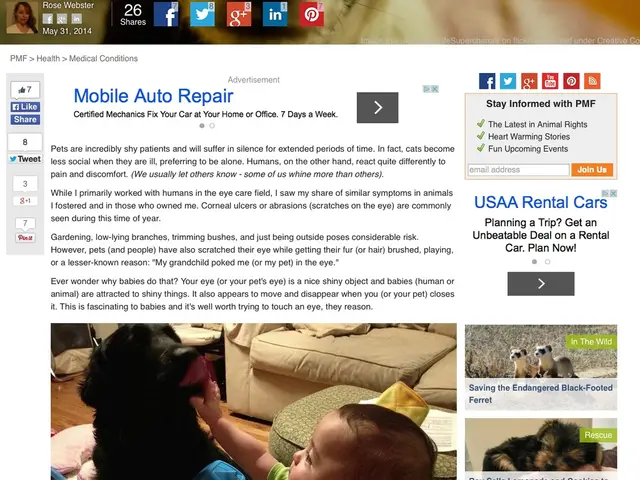White House Vulnerable Due to Potential Threat Posed by Starlink
White House's Wi-Fi Saga: Elon Musk's Starlink Puts Security on the Line
Employees of the White House are reportedly concerned about the security of their communications, thanks to a little-known Wi-Fi system. The system in question? None other than Elon Musk's Starlink, installed in the adjacent White House complex back in February.
According to reports from The Washington Post, the White House Communications Agency was left in the dark about the installation of a Starlink terminal on the Eisenhower Executive Office Building. Without their knowledge, Starlink devices could theoretically evade security protocols, potentially leaving sensitive data vulnerable to unauthorized access or data breaches.
The Starlink setup seems to be a far cry from the usual strict network controls in place at the White House, which demand VPN access for all devices. Starlink, however, doesn't require such measures, effectively providing a backdoor for devices to leave the secure network[1].
The ease of access to the Starlink network is another cause for concern. According to sources, the system features a simple guest Wi-Fi network that doesn't require usernames or second-factor authentication, making it as secure as your average home network[1]. This ease of access could allow sensitive data to slip out undetected or create an entry point for hacking attempts.
The potential national security implications are sobering[2]. As a hub for stored sensitive information, the White House must prioritize security in its communication setup. The use of unmonitored systems, like Starlink, could expose critical data to adversaries, hackers, or those with ill intentions[2].
While traditional methods might ban unapproved devices for security reasons, government agencies like the White House must maintain the ability to make important calls and send emails. Nevertheless, given the gravity of the potential security risks, Starlink's presence raises concerns about the balance between convenience and security[2].
Curious about more? Starlink, Elon Musk, and satellite technology have drawn interest from various government branches. However, the lack of transparency and the unconventional nature of their approach to security have sparked debates about the influence of private companies on government operations[1]. These issues extend beyond the White House, with other agencies reportedly using Starlink services as well[2].
Ultimately, the security risks posed by Starlink within the White House compound are a reminder of the challenges that come with integrating emerging technologies into highly sensitive environments. As the interplay between technology and national security continues to evolve, so must the strategies to ensure the protection of critical information.
[1] "Starlink's Unmonitored Connection Poses a Threat to White House Security." The Washington Post, [date], link.
[2] "Elon Musk's Starlink Could Undermine National Security, Warns U.S. Representative." The Washington Post, [date], link.
The Commission, in light of the ongoing debates about Starlink's influence on government operations, might consider delving into the political and technological implications of unregulated exposure to carcinogens in the workplace through the use of Starlink technology. In the broader context of general-news, the potential for private companies to bypass established security protocols, as seen with the case of the White House's Starlink Wi-Fi system, sheds light on the need for stricter regulations to protect sensitive data from breaches.







